There are 'too many exams' says board that sets school tests
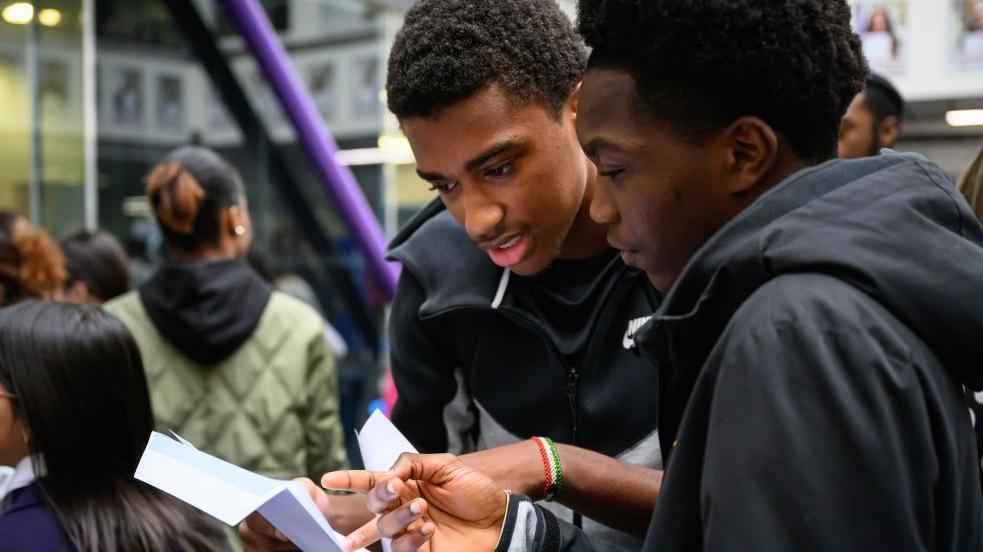
Thousands of students across the UK got their GCSE results over the summer
- Published
Taking GCSE exams before you leave secondary school is something thousands of students do right across the UK every year.
You may even have older siblings or relatives who've sat their GCSEs recently.
However, one exam board is calling for a change to the examination process in a new report.
Oxford, Cambridge and RSA Examinations (OCR) is one of the five main exam boards in England, Wales and Northern Ireland, and it says there are "too many exams".
Exam boards are responsible for creating, marking and awarding exams qualifications.
More on exams
GCSE results for children who had secondary school start disrupted by pandemic
- Published22 August 2024
Exams the 'biggest worry' for school children
- Published5 February 2024
Should tests be on paper or on screens?
- Published18 October 2023
A-level results 2024: Grades rise again for students
- Published15 August 2024
What has OCR said?
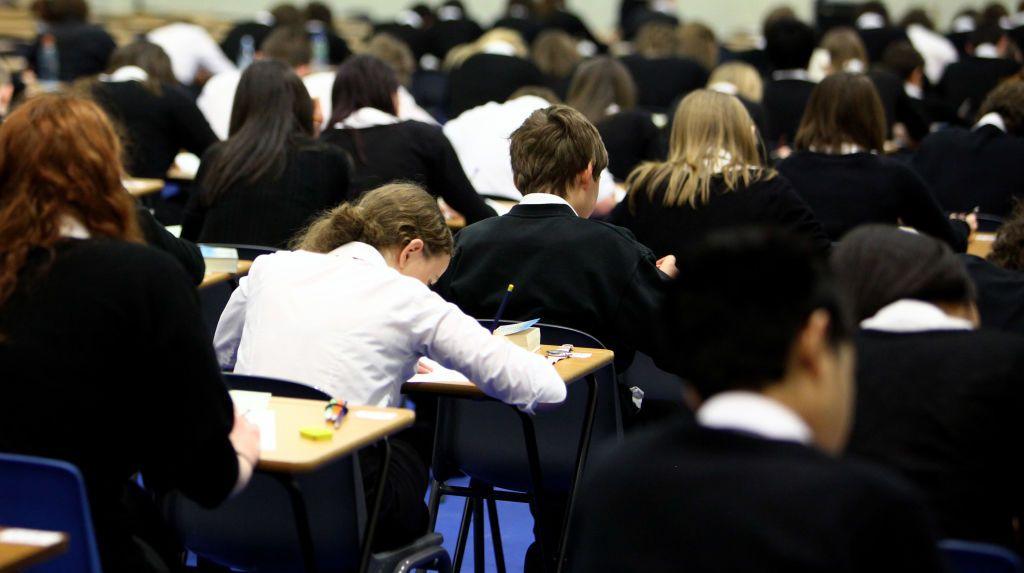
The exam board OCR has said students have too many exams
OCR says students in England are spending around 31.5 hours taking exams.
It also revealed English GCSE students spend more time than almost anywhere else in the world taking tests.
The exam board believe the number of GCSE exams students have to do and the intensity is currently too high.
The exam board is calling for there to be less of a focus on just exams for GCSE students. It also wants an update to the current curriculum, with the creation of an independent body, responsible for keeping it relevant and up-to-date.
"No-one expects an exam board to say there are too many exams," said Jill Duffy who is the chief executive of OCR.
"Established exams have enormous strengths. But you can have too much of a good thing over a short period," she continued, adding that there needs to be a more balanced approach to GCSEs assessments, without 'sacrificing standards'.
"A more relevant and enriched curriculum would give more space for deeper learning, better preparing our children for an incredibly complex world."
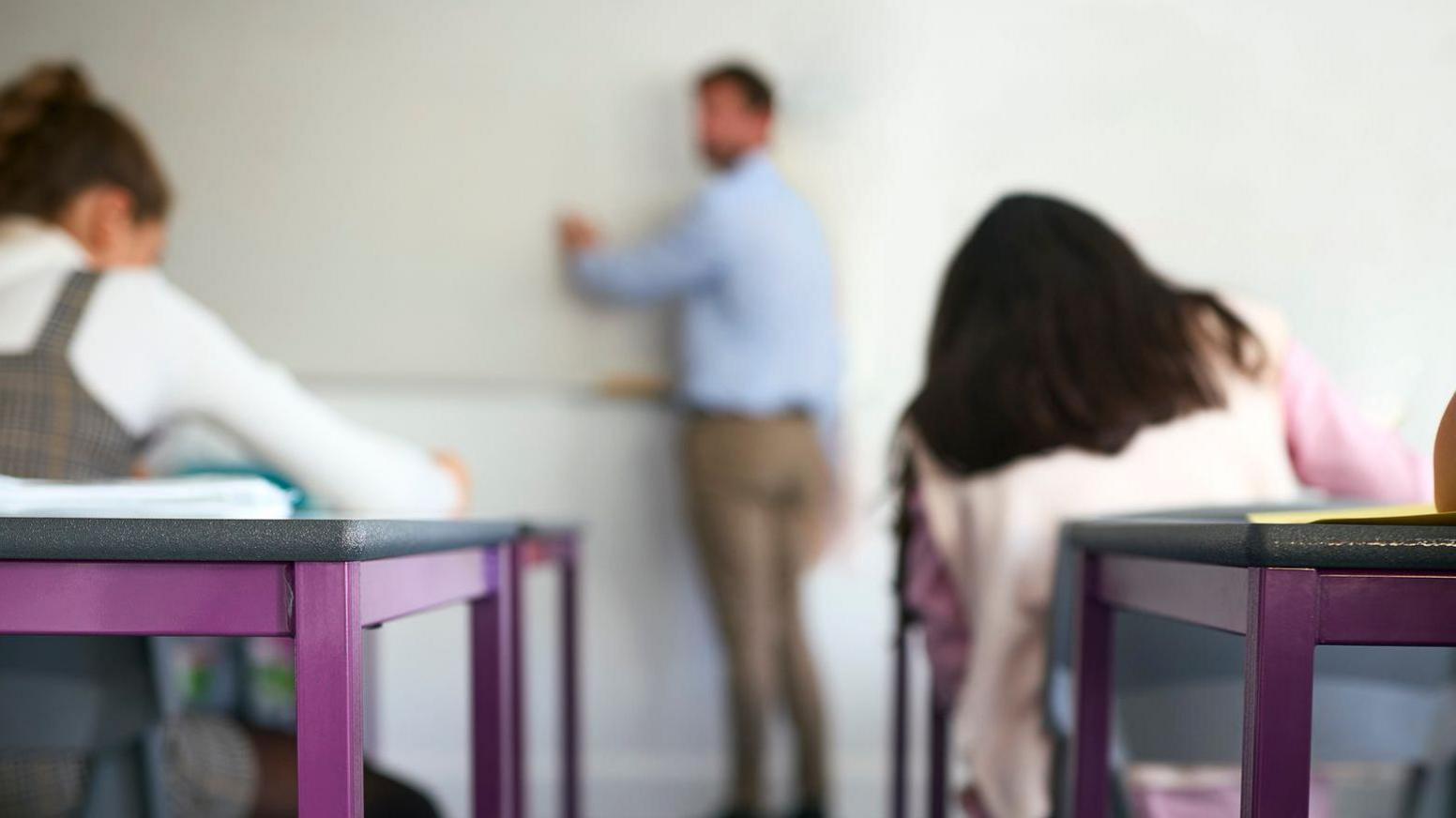
OCR spoke to lots of teachers before publishing their new report
OCR gathered opinions from lots of different people as part of their review, including more than 2,000 students and teachers.
Charles Clarke who is a former government education secretary and chaired the OCR report, has called for a complete change to the system.
"Too many children are emerging at 16 without the basic skills they need to navigate a rapidly changing world," he said.
"Many teachers we consulted felt that this sort of change would give them the time and space to do the sort of teaching they joined the profession for."
What has the government said?
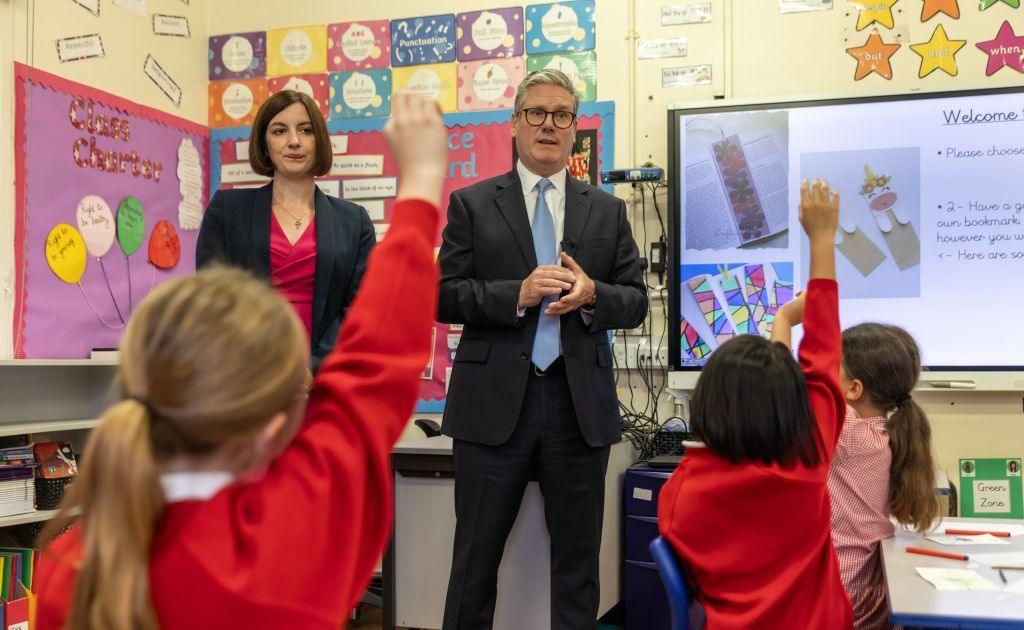
The education secretary Bridget Phillipson (left) has commissioned a government review around education
OCR's new report comes not long after the government's Education Secretary, Bridget Phillipson commissioned a review into the school curriculum and how children are assessed.
The government says it'll focus on some of the key challenges young people face when it comes to their education, including coming from disadvantaged backgrounds or having special educational needs.
A Department for Education spokesperson told Newsround:
“The curriculum and assessment review will bring together leading education experts, leaders and staff, to consider how to ensure young people get the opportunity to access a broad and balanced curriculum, as well as the crucial work and life skills necessary to succeed in both the workplace and throughout their lives.
“It will also work to deliver a system that balances different assessment methods alongside the importance of exams, to capture the strength of every child and young person.”
More of the latest stories
- Published3 September 2024

- Published3 September 2024
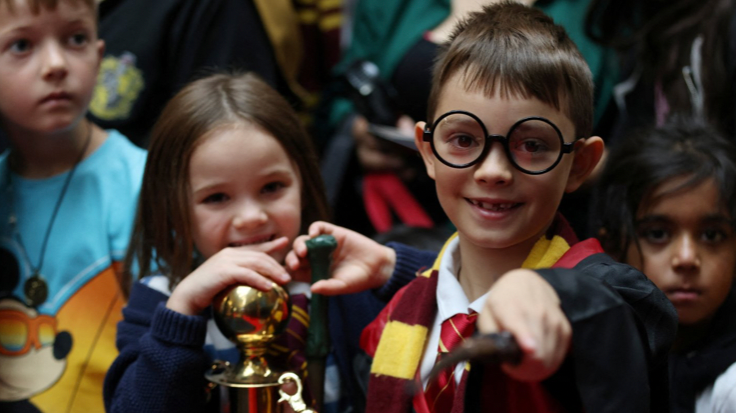
- Published3 September 2024

